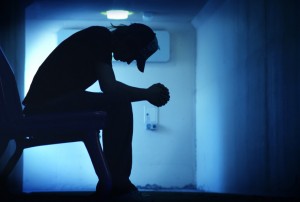What if we recognize addiction as a medical problem with ancillary criminal consequences instead of as a criminal problem? What if we didn’t treat addicts as criminals?

Minnesota makes possession of any amount of a Schedule I or Schedule II drug (except small amounts of marijuana) a felony. If you use drugs, you possess drugs. So, addicts are criminals.
The Problems
What happens when Chad is found with drugs? He is arrested. So is everyone with him. What does arresting an addict accomplish? A whole lot of nothing good. Why would Chad admit to being an addict and ask for help when the resulting felony record can prevent him from getting a job, housing, public assistance, education, or professional licensing – and may lead to a stint in prison?
Prisons are Full of Addicts
Volumes have been written about the number of non-violent drug offenders in prison. More are in local jails. The racial disparities in incarceration rates for drug offenders is also well-documented, both nationally and, especially in Minnesota. Locking up drug offenders hasn’t reduced addiction.
Our whole paradigm of thinking about drug use as a crime first, after which treatment may be a consequence, is backwards. Take Dakota County Attorney Jim Backstrom, recently interviewedon Minnesota Public Radio: “Without the criminal justice system’s intervention . . . in a large number of these situations, there will be no treatment, there will be no one going in voluntarily to accept treatment, you know the criminal justice system plays a very important role. . .”. No, Jim, the threat of arrest prevents people from coming forward for treatment. You’re not going to arrest all of them.
“Illegal” is Just a Word
Let’s not get too hung up on labels; “legal” and “illegal” are ephemeral terms that reflect the public’s mood at a given time, not a drug’s lethality or danger. “Illegal” creates a visceral reaction that confuses the matter.
It wasn’t that long ago that alcohol was illegal and cocaine was legal; marijuana got you arrested in Colorado this past New Years’ Eve, but not on New Years’ Day–times change.
Whether you are comfortable calling drug addiction a disease, a mental illness, or a behavioral disorder, the effect is the same. Addiction is not a choice. Addicts want to stop and cannot – for whatever reason.
Total Abstinence: “Don’t use drugs, and you won’t get addicted.”
Total abstinence isn’t realistic. Even the most ardent prohibitionists may be prescribed opiates for surgery or benzodiazepines for anxiety or to treat convulsive disorders, such as epilepsy.
Doctors tell you to stay ahead of the symptoms: to take the drug before the symptom manifests. But in the body of an addict., taking these drugs as prescribed can trigger the brain mechanisms that lead to an uncontrollable spiral.
Some Solutions
Legalization
Legalization of all drugs is not the solution.
Most drugs (including alcohol) are dangerous and should be used with discretion, if at all. There is a relationship – albeit not direct – between legalization and ease of access, and we definitely want to keep children from having access.
But, maybe the solution is to treat some drugs like we treat alcohol: make them available but in a regulated way and only to people over a certain age. Anecdotally, children have an easier time getting marijuana than alcohol.
Treatment
Think of treatment as a medical solution to the problem of addiction.
Most of the time, when I discuss the criminal consequences of a drug arrest with a prosecutor, a judge, or a probation officer, the number one question (both in order that it is asked and in importance) is whether the offender has health insurance.
If he has insurance, we start talking about one course of action, focused on treatment. If he doesn’t, we focus on the other: punishment. With insurance, Chad’s addiction is a medical issue and Chad becomes a patient. Without insurance, it’s a criminal issue, and Chad becomes a convict.
Take the Profit out of the Criminalization of Addiction
Currently, police are incentivized to trump up drug charges for the sole purpose of confiscating property to fund their annual budget. Drug case confiscations circumvent the 4th amendment’s protection against unreasonable seizure, effectively granting law enforcement a license to steal –but only from addicts.
Murderers, rapists, and burglars continue to enjoy their right to due process. For-profit prisons require states to lock up a certain percentage of their population.
Decriminalize Life-Saving Measures:
Naloxone
Naloxone (a/k/a Narcan) is a drug that when administered quickly can reverse the effects of an overdose and save lives. It is administered not only to junkies, but to children who find their parents’ prescriptions. Yet most jurisdictions do not allow first-responders to carry Naloxone. There is not the political will to help junkies, who are seen as criminals first and sick people second, if at all.
Good Samaritan Law
At least fourteen states have laws that provide limited immunity from arrest for people who call 911 to report an overdose. This policy encourages the people closest to those at risk of an overdose to seek urgent medical care on their behalf without considering their own risk of prosecution. The result is that the protection of human life is placed ahead of the chance of a criminal conviction. Minnesota is not among these states. In fact, Minnesota is increasingly likely to file pursue murder charges to against someone for supplying the drugs
So cops show up to a scene of an overdose and, instead of administering life-saving medicine, arrest everyone in sight and charge them with felonies.
We cannot invoke any of these rational responses as long as we insist on arresting the addicts. Criminal prosecution doesn’t cure addiction.
Leave a Reply